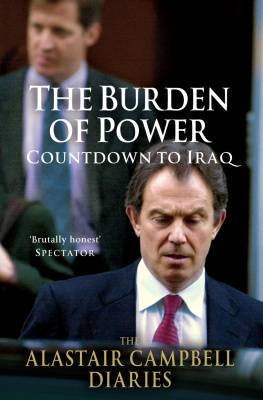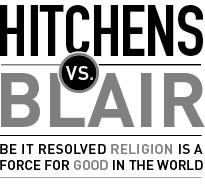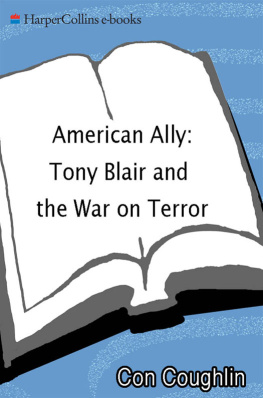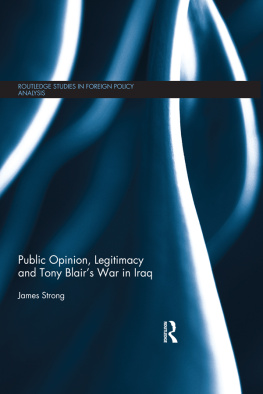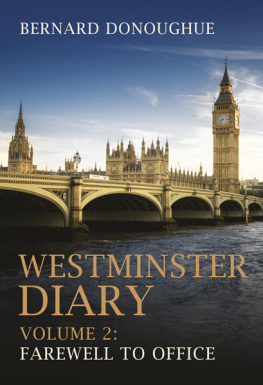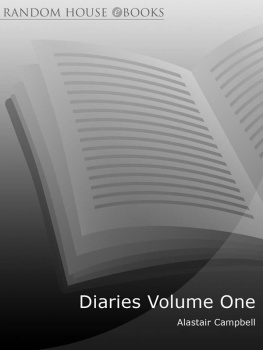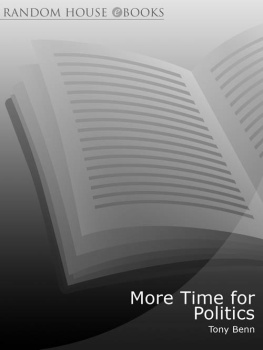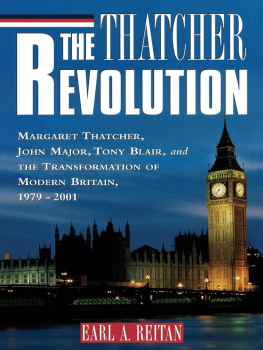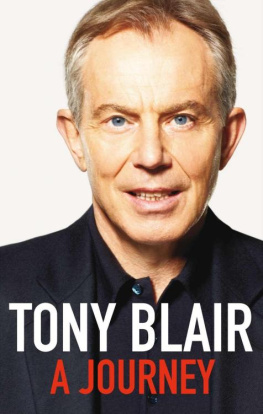Blair Tony - The people v. Tony Blair politics, the media and the anti-war movement
Here you can read online Blair Tony - The people v. Tony Blair politics, the media and the anti-war movement full text of the book (entire story) in english for free. Download pdf and epub, get meaning, cover and reviews about this ebook. City: Großbritannien;Winchester;UK, year: 2013, publisher: John Hunt Publishing;Zero Books, genre: Politics. Description of the work, (preface) as well as reviews are available. Best literature library LitArk.com created for fans of good reading and offers a wide selection of genres:
Romance novel
Science fiction
Adventure
Detective
Science
History
Home and family
Prose
Art
Politics
Computer
Non-fiction
Religion
Business
Children
Humor
Choose a favorite category and find really read worthwhile books. Enjoy immersion in the world of imagination, feel the emotions of the characters or learn something new for yourself, make an fascinating discovery.

- Book:The people v. Tony Blair politics, the media and the anti-war movement
- Author:
- Publisher:John Hunt Publishing;Zero Books
- Genre:
- Year:2013
- City:Großbritannien;Winchester;UK
- Rating:4 / 5
- Favourites:Add to favourites
- Your mark:
- 80
- 1
- 2
- 3
- 4
- 5
The people v. Tony Blair politics, the media and the anti-war movement: summary, description and annotation
We offer to read an annotation, description, summary or preface (depends on what the author of the book "The people v. Tony Blair politics, the media and the anti-war movement" wrote himself). If you haven't found the necessary information about the book — write in the comments, we will try to find it.
Blair Tony: author's other books
Who wrote The people v. Tony Blair politics, the media and the anti-war movement? Find out the surname, the name of the author of the book and a list of all author's works by series.
The people v. Tony Blair politics, the media and the anti-war movement — read online for free the complete book (whole text) full work
Below is the text of the book, divided by pages. System saving the place of the last page read, allows you to conveniently read the book "The people v. Tony Blair politics, the media and the anti-war movement" online for free, without having to search again every time where you left off. Put a bookmark, and you can go to the page where you finished reading at any time.
Font size:
Interval:
Bookmark:
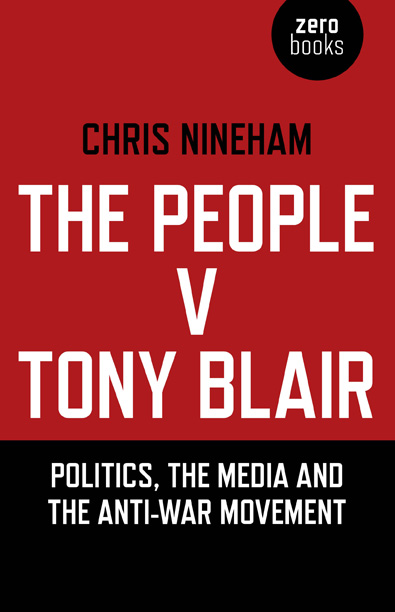
The People v. Tony Blair
Politics, the Media and the Anti-War Movement
Chris Nineham

Winchester, UK
Washington, USA
First published by Zero Books, 2013
Zero Books is an imprint of John Hunt Publishing Ltd., Laurel House, Station Approach, Alresford, Hants, SO24 9JH, UK
office1@jhpbooks.net
www.johnhuntpublishing.com
www.zero-books.net
For distributor details and how to order please visit the Ordering section on our website.
Text copyright: Chris Nineham 2012
ISBN: 978 1 78099 816 9
All rights reserved. Except for brief quotations in critical articles or reviews, no part of this book may be reproduced in any manner without prior written permission from the publishers.
The rights of Chris Nineham as author have been asserted in accordance with the Copyright, Designs and Patents Act 1988.
A CIP catalogue record for this book is available from the British Library.
Design: Stuart Davies
Printed and bound by CPI Group (UK) Ltd, Croydon, CR0 4YY
We operate a distinctive and ethical publishing philosophy in all areas of our business, from our global network of authors to production and worldwide distribution.
CONTENTS
- The Road to War
- A Hard Sell
- The Second Superpower
- The Making of a Movement
- Blair on the Brink
- The Media in a Spin
- The Difference We Make
- Wounded Beasts
Acknowledgements
This short book is a product of the collective experience I have been lucky enough to share over the last eleven years with a range of talented and committed campaigners in the Stop the War Coalition, some of whom feature in the book. I am very grateful to all of them for many things. The book has drawn on my research at the Communication and Media Research Institute at Westminster University under the guidance of Anthony McNicholas and Pete Goodwin. Their ideas and support have been invaluable. Tariq Goddards enthusiasm helped convince me to write it. Lindsey German, John Rees, Andrew Murray, Sabah Jawad and Feyzi Ismail have all given me vital ideas or detailed comment for the book or both. Feyzi Ismails presence in my life made it possible. I hope I have done them all justice.
Introduction
On Tuesday, 11 March 2003, British Defence Secretary Geoff Hoon phoned Donald Rumsfeld, his opposite number in the US, and told him Britain might not participate in the invasion of Iraq. We in Britain are having political difficulties, he said, real difficulties, more than you might realise. He explained that there was a real chance an upcoming vote in parliament would go against the war, in which case Britain would have to disconnect its troops from the operation. That night, Donald Rumsfeld went public about Blair s problems at a televised White House press conference, admitting Britain might not be showing up for the invasion. He reassured the media there are workarounds. Blair, Hoon and their colleagues were furious.
This was nine days before the invasion of Iraq. Hoons phone call reflected panic in Blair s camp. A few days earlier Home Secretary Jack Straw had told Blair that if he went to war with Bush without a second UN resolution, the only regime change that will be happening will be in this room.
Whatever Donald Rumsfeld might have meant by workarounds if Britain had pulled out of the war it would have been catastrophic not just for the government but for the whole Iraq operation. As Hoon himself admitted later, the British and US forces were so intertwined there would have been a massive hole in military planning. Worse, the US would have lost vital political cover for an invasion that was leaving it more and more isolated.
The panic in Downing Street was largely a result of public opposition and protest, the impact of what the New York Times two days after the 15 February global protests called the second superpower.
All this and more has found its way into the public record, at least in the last few years, but it is not in the standard account of the time. The received wisdom is that Blair and his team sailed through those months blithely ignoring all criticism, unimpressed by popular protest and unconcerned by public doubt. Largely of course, this is because he did in the end get away with it; the parliamentary revolt was contained just and the war went ahead with all its predicted horror. But it is not just that. Panic and disarray dont fit the Teflon Tony image that has been constructed by Blair and his admirers. More generally the last thing rulers want to do is admit they have been shaken by the action of those they rule. So it should come as no surprise that it is only years after Tony Blair s resignation that the full extent of the crisis caused by opposition to the Iraq war has begun to surface.
Accompanying this crisis was unusual media behaviour. The mainstream media normally ignores, marginalises or even criminalises radical protest. For a short period around the start of the Iraq war something different happened. Not only was there widespread and at times celebratory coverage including demonstration supplements in the Sunday papers but some newspapers actively encouraged their readers to participate in demonstrations with maps, arguments and even banner headlines. While the Murdoch press was uniformly hostile and most of the media supported the war, the protests could not be ignored. The Mirror took the decision to actively back the anti- war movement. In the run-up to 15 February it regularly carried articles explaining why marching mattered. Senior staff from the Mirror actually met with march organisers to discuss how to promote the protest and produced thousands of placards to be distributed on the demonstration itself.
All this reflects the depth of the crisis created by the Iraq war and the movement against it. It is a challenge to the pessimistic view that marching and mass movements change nothing. The Stop the War movement generated not just the biggest demonstrations in British history but also an unprecedented outbreak of direct action, including the biggest wave of school walkouts in British history. In fact the movement broke a series of protest records. 15 February was the biggest protest of all time in Britain and many other countries. Britains biggest weekday protest took place when 300,000 confronted George Bush on his November 2003 visit to London; and its biggest protest in wartime took place when around half a million marched two days after the bombing started.
As the decade went on the movement also organised further massive demonstrations over Iraq and a series of important marches and protests against the occupation of Afghanistan. In 2006 Stop the War called two very large emergency demonstrations against the Israeli invasion of Lebanon and in 2009 co-organised two massive demonstrations against the Israeli incursions into Gaza. Most important, the real history of the anti-war movement suggests that in fact, co-ordinated mass action does have the power not just to change minds but to challenge governments.
This isnt just a debate about the effectiveness of protest; there are also wider analytical questions at stake. Bush and his coterie were nothing if not self-confident. After a shaky start, success in Afghanistan had the effect of supercharging both Bush and Blair s sense of mission. Anger at the massive build up of power at the centre of imperialism, the arrogance and cynicism of the Western leaderships, and the more and more obvious links between governments and the corporations can lead to an overestimation of the power of imperialism. Certainly some left-wing analyses of imperialism after the collapse of the Soviet Union reflected Western triumphalism more than real power relations. As we shall see, internal US foreign policy documents from around the turn of the 21st century in fact reveal a mixture of hubris and anxiety, reflecting the USs still dominant but increasingly challenged position in the world. The anti-war protests at the time and in the ten years since the invasion of Iraq have underlined imperialisms vulnerability just as much as its terrible capacity to unleash carnage on the world.
Font size:
Interval:
Bookmark:
Similar books «The people v. Tony Blair politics, the media and the anti-war movement»
Look at similar books to The people v. Tony Blair politics, the media and the anti-war movement. We have selected literature similar in name and meaning in the hope of providing readers with more options to find new, interesting, not yet read works.
Discussion, reviews of the book The people v. Tony Blair politics, the media and the anti-war movement and just readers' own opinions. Leave your comments, write what you think about the work, its meaning or the main characters. Specify what exactly you liked and what you didn't like, and why you think so.

